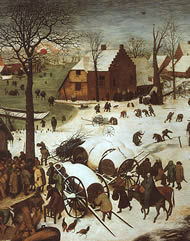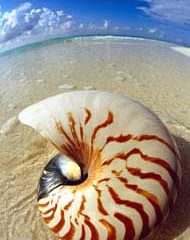The 2001 calendar year was slightly warmer than “average,” according to global climate data gathered by instruments aboard NOAA satellites.
The composite global temperature for 2001 was 0.06 degrees C (about 0.11 degrees Fahrenheit) warmer than the 20-year (1979-to-1998) average, said Dr. John Christy, a professor of atmospheric science and director of the Earth System Science Center at The University of Alabama in Huntsville (UAH).
Compared to other years, 2001 was the ninth warmes
Aquatic organisms often hitch a ride in the ballast tanks of ocean-crossing ships, ending up in ports far from their native habitats. Upon arrival, these alien species can wreak havoc in their new environs, forcing out native species and incurring huge economic costs. Now a new report published in the journal Biological Conservation suggests that a certain anti-corrosion technique could help prevent such invasions while saving the shipping industry hundreds of thousands of dollars a year.
C

A solar slump may have chilled the Northern Hemisphere.
The flickering sun may cause rapid climate change, according to a new comparison of climate records. A 200-year cold snap 10, 300 years ago seems to have coincided with a passing slump in the sun’s activity 1 .
Svante Bjorck of Lund University in Sweden and colleagues looked at sediments in Lake Starvatn on the Faroe Islands and in the Norwegian Sea, the width of growth rings in ancient German pine trees

American Geophysical Society Meeting, San Francisco, December 2001
Pressure system secrets could help long range forecasts.
The rise in levels of greenhouse gases has halted an oscillation of air pressures over the Arctic, bringing warmer, wetter winters to Northern Europe, Siberia and Alaska. The shift could get worse with increasing CO2 emissions, delegates heard this week at the American Geophysical Union meeting in San Francisco, California.
The trend is unlikel
In 1998, Paul F. Hoffman and Daniel P. Schrag at Harvard University put forth a chilling description of earth’s climate some 650 million years ago. Their theory, dubbed snowball earth, held that between 750 million and 580 million years ago, ice repeatedly enveloped our planet, coating the seas from pole to pole and killing off early life almost completely. During the past few years, the idea has stirred up a great deal of debate. And new data published in the December issue of Geology only furt

Water trapped for millions of years gives a glimpse of oceans’ turbulent past.
Drops of sea water entombed within salt crystals millions of years ago are giving researchers a glimpse of ancient oceans. The water, trapped during evaporation, reveals that the seas have seen large chemical changes during their history.
“The consensus had been that sea-water chemistry hadn’t changed that much over the past 600 million years,” says geochemist Juske Horita of Oak Ridge National La